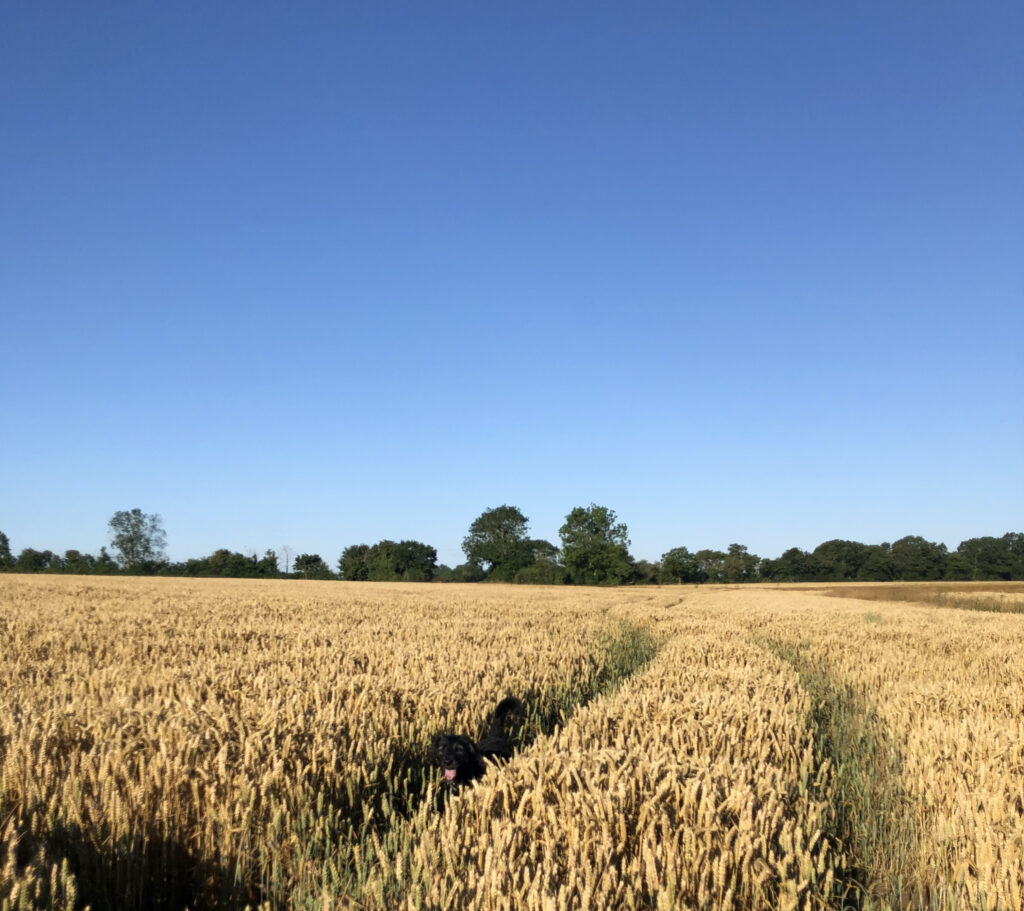
Do not be fooled by the azure sky. As I write, swathes of heavy rain race across the fields on a gale-force wind, veiling crops and trees, turning the colours of summer into a dull monochrome. It is the first named storm of the autumn. Yes, the autumn, for that is how it feels.
St Swithun has let us down this year: St. Swithun’s day if thou dost rain, For forty days it will remain. St. Swithun’s day if thou be fair, For forty days ’twill rain nae mare
It looked so promising after his feast day on 15 July: the sky was a deep blue, the breeze was gentle, the sun intense. The heat built and built. Some parts of the country received a rare amber warning for hot weather, though here on England’s eastern edge air from the sea tempers the heat. Summer had at last arrived after weeks of a grey dampness. But Swithun was teasing us. After ten days summer ended in the usual thunderstorm, and ever since it has been rain, rain, torrential rain every day.
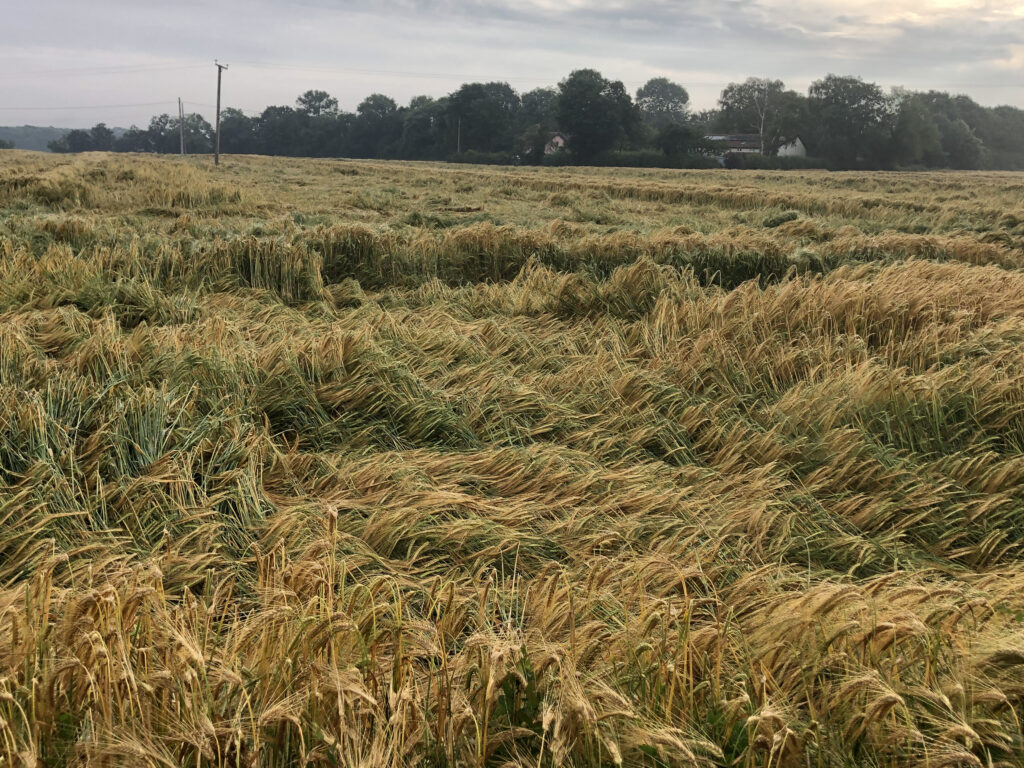
So torrential that whole fields of crops were laid flat. The harvest, already late because of a cold and indifferent spring, had started with the barley and the oilseed rape during that brief snatch of summer, and for a few days the countryside hummed and roared with the sound of combines. The lane once again shook with heavy machinery moving at speed to the next field to be cut. But all is silent now, with only the sound of rain beating against the window pane.
My own harvest continues apace, and – despite this mediocre summer of 2021 – there is pleasure and gratification to be had in the picking, cutting prepping, freezing – and eating; the labours of spring and early summer translated into food.
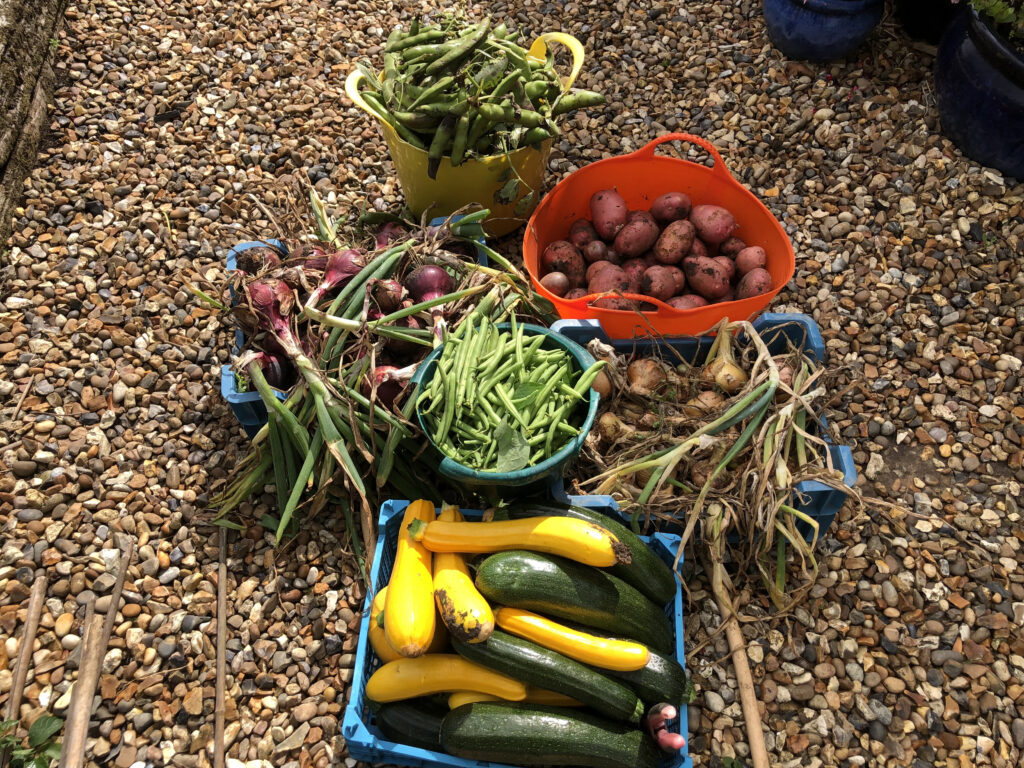
So torrential was the rain that parts of London flooded. In Germany, Belgium, eastern France and the Netherlands a month or so of rain fell in a few hours. Many died. Last month parts of Canada and the US saw their hottest temperatures to date. China experienced devastating floods. Even damp and chilly Northern Ireland broke temperature records. Can anyone deny that this is more than just weather, and is now a pattern of change to the global climate?
Can the weather saints therefore no longer be relied on? There has always been so much truth in their lore. Mid-July so often sees a shift northwards of the jet stream, allowing high pressure to build and remain over the UK through till the end of August. In France St Médard on 8 June provides much the same service: S’il pleut le jour de Saint Médard, Il pleut quarante jours plus tard. This year it seemed Médard brought a heatwave in France, but heavy rain soon washed away this promise. Médard, a sixth-century bishop of Noyon, is often depicted with an eagle sheltering him from the rain, and thus he is venerated as the protector of those who work in the open air.

Swithun was a ninth-century bishop of Winchester. His connection with the weather, and particularly with the rain, may come from the legend that in his humility he asked to be buried outside his cathedral, where passers-by would step over his grave and raindrops would fall upon it. He is invoked in times of drought. He will not be busy this year.
Belgium has its own rainy saint, Saint Godelieve, of whom little is known other than that she was a holy woman in Flanders who was cruelly treated, and finally murdered, by her inhuman husband. Ever since her death in the eleventh century she has been venerated as a martyr in Belgium, and particularly in Ghent. The Germans ascribe a similar character to the day of the Seven Sleepers of Ephesus, 19 July.
This is the fourth July about which I have written in this blog, and the reader will deduce that I have little new to say. No poetic rhapsodies this month about Suffolk being a sea of gold as the sun beats down from a sapphire sky. All that beats down is the rain. I have less to say, maybe, than usual, for I still feel a sense of being locked down with its restrictions and anxieties, and although “normal” life is slowly creeping back, the virus still rampages. Life is becoming more social, but my world still seems shrunken and turned in on itself. There is no carefree jumping on a train to London to see an exhibition or go to a meeting. Even the doubly-vaccinated are falling ill, some quite seriously.
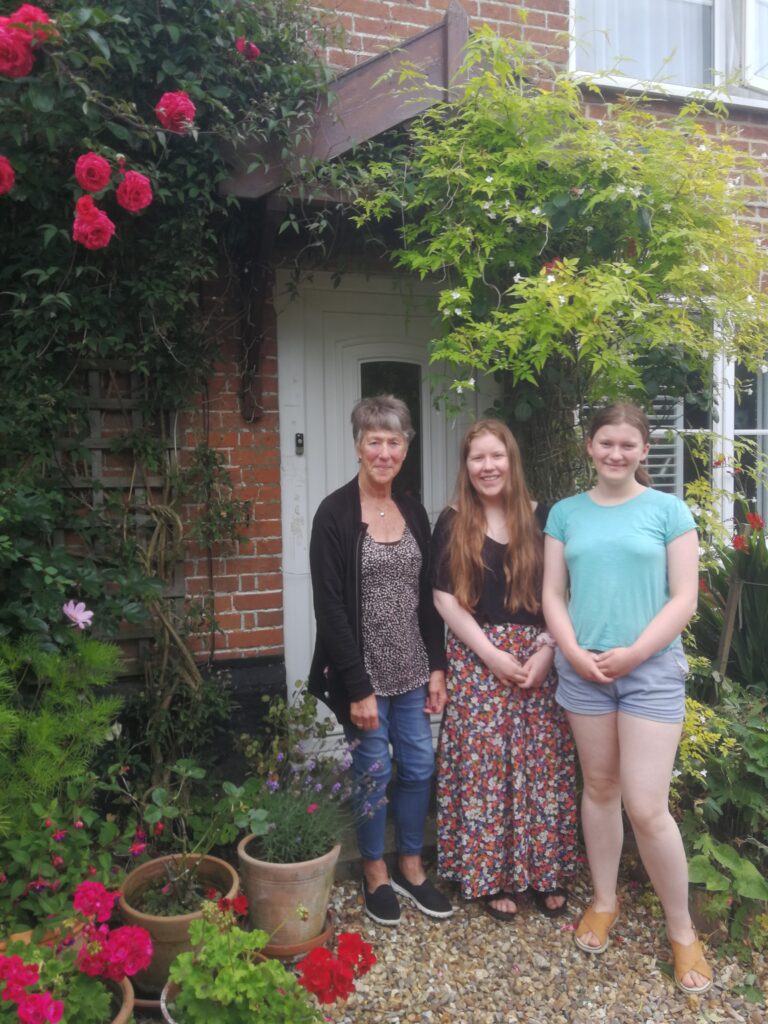
Earlier in the month the world came to me, in the shape of my family – daughter, granddaughters, son-in-law, and the house filled with the chatter of young people, and the bustle of cooking and clearing meals. I have almost forgotten how to cook, how to be in company. My elderly – and indeed not so elderly – friends tell me I am not alone in this. I resolved to put fear of contagion away from me during the visit, and hid the lateral flow tests I had acquired, but we have lived with the virus so long now it is hard to forget.
They came; we ate, we drank, we walked by the sea, we went to a pub, we played the usual family games, and then they were gone. The dog, insatiable, pines for the games of ball. The cat misses the sudden tsunami of stroking and petting.
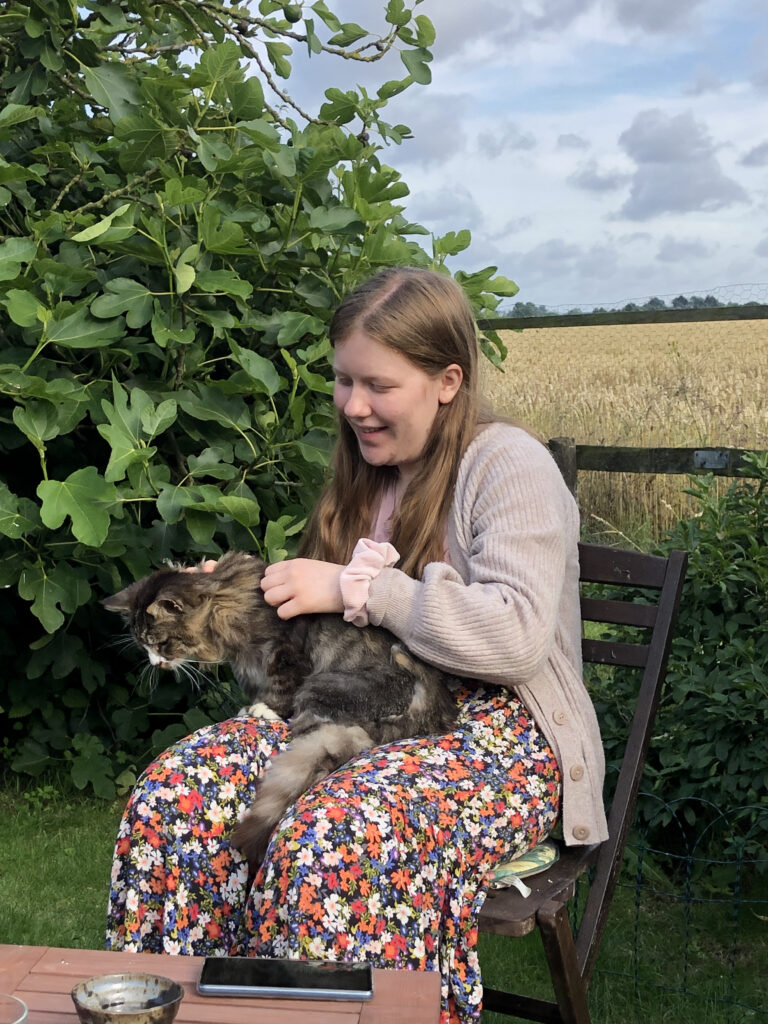
And so the year pursues it course. The weeks rush past at a dizzying speed. And with the storm raging outside come premonitory signs of the end of summer, a summer which has scarcely begun. Our early morning walks are silent now, with only the lark and the yellowhammer singing. The last brood of baby birds under the eaves has finished the insistent cheeping. The mornings when it is not raining are misty, cool.
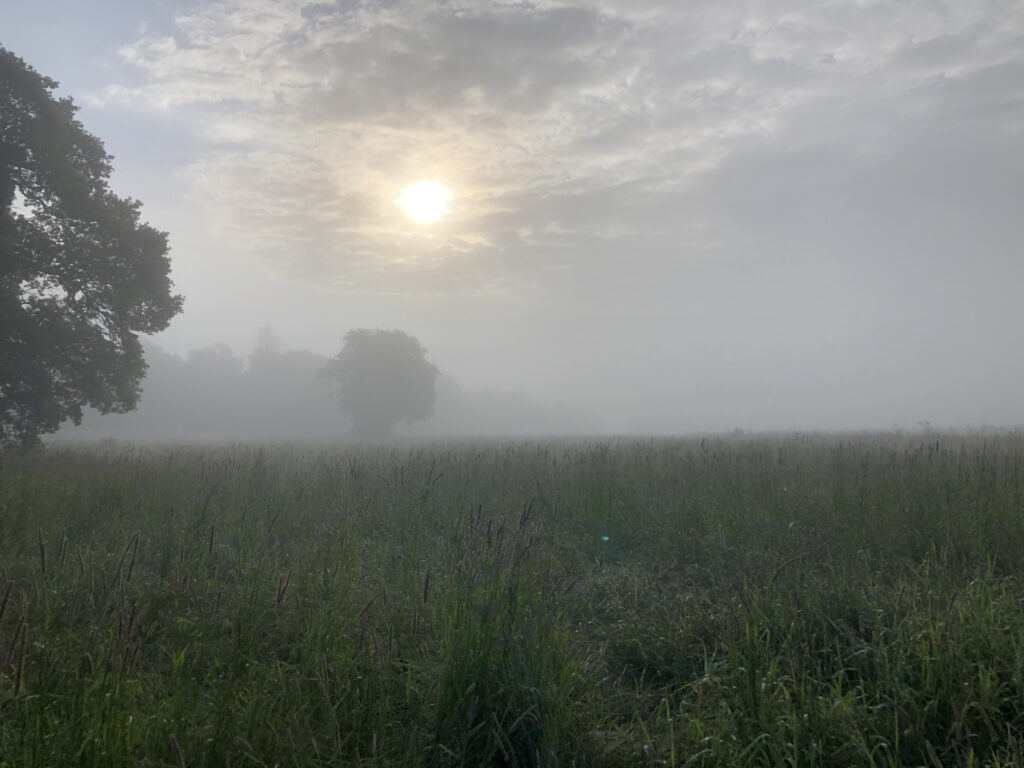
Or there is early sun, too bright, swiftly followed by gathering shower clouds.
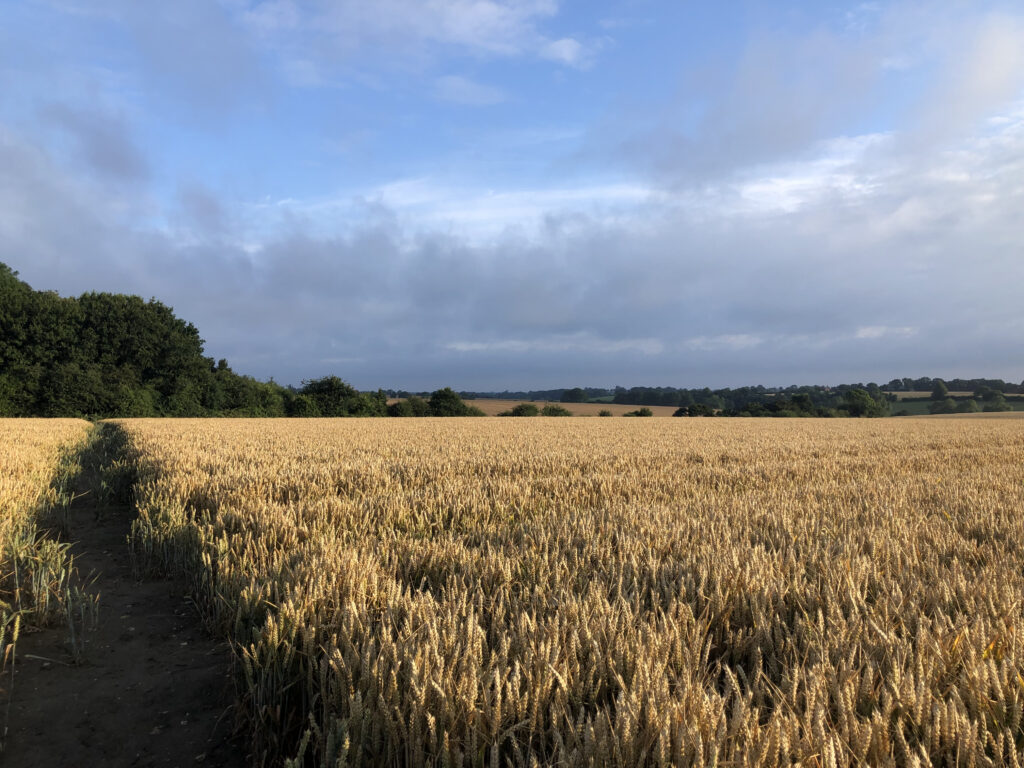
How do I feel, now the year is growing old, now that daylight begins to shrink, and we drift towards autumn? This should be the time of ease and relaxation in the summer sun, a time of sitting out late into the evening under the stars. There is a sense of being cheated of something, of something lost never to return. How do we know how many summers there are to come? How do we know what is waiting for us round the corner? At my age, changes will come, moves will have to be made, friends will die. Cruel Covid has deprived us of much; this eternal grey wetness has taken away our summer. Live in the moment. There is always something good there.

